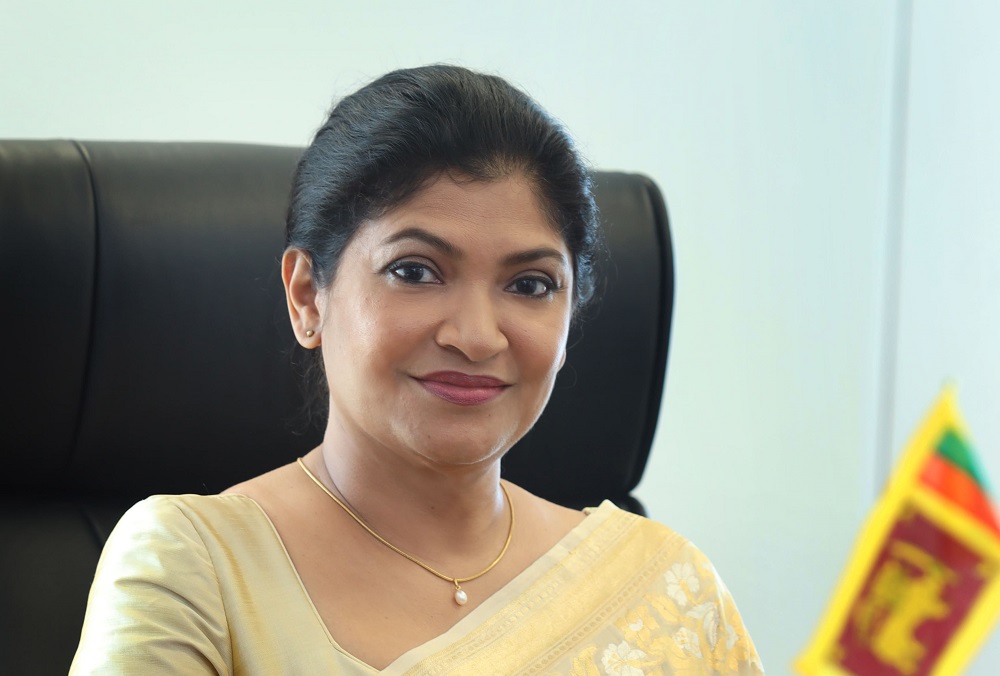
13th July 2022: Investors are cashing in on the strong prospects of Sri Lanka’s apparel and textile exports sector, the country’s main export industry, which caters to some of the leading fashion brands globally.
Although the South Asian island announced that it would default on its foreign debt earlier this year, the country’s exports and Foreign Direct Investment (FDI) inflows – both overall and relating to the apparel sector – have ‘bucked the trend,’ showing remarkable resilience.
Sri Lanka’s cumulative national merchandise exports for 2022 up to the end of May exceeded US$5.1 billion, a nearly 10% increase from the same period of 2021 and a 46% increase from the corresponding period of 2020. Similarly, the apparel and textile sector recorded US$2.25 billion in export earnings during the same period of 2022, reflecting an 86% increase year-on-year.
FDI inflows to Sri Lanka have mirrored the positive performance of its exports sector.
Overall, Sri Lanka has attracted more than US$ 228 Million in FDI during the first quarter of 2022, a 17% increase compared with the corresponding period of last year. FDI inflows to the apparel sector – considering the value of agreements signed with investors too as increased fourfold up to the end of June 2022 in comparison to January – June of the corresponding period in the previous year.
“Considering the challenges that Sri Lanka has overcome in the past, investors remain confident of the country’s prospects and resilience,” said Renuka M. Weerakone, the Director-General of Sri Lanka’s Board of Investment (BOI), the country’s dedicated investment promotion and facilitation agency.
“Due to strong interest, especially among apparel industry investors, we recently set up three new re-investment teams to support investors. We have been receiving multiple queries regarding the availability of suitable land from investors looking to further expand their apparel manufacturing plants in Sri Lanka since many of them have seen an increase in orders.”
The BOI has thus far signed agreements worth US$76 million for both new investments and expansions in the apparel sector in 2022. The total pipeline – together with pending approvals for investments and expansions in apparel – currently stands at US$165 million.
Besides expanding apparel manufacturing facilities, some investors are also eyeing lucrative opportunities in raw material production and backward vertical integration in the Sri Lankan apparel industry.
On this front, the BOI has seen strong investor interest, especially in the Eravur Fabric Processing Zone. The zone is a significant initiative that aims to strengthen the Sri Lankan apparel sector’s backward vertical integration, enabling the industry to make greater use of preferential tariff concessions in its exports to the European Union (EU), its second-largest market, as well as reduce industry lead times.
Recently, the BOI formally signed the agreement for the first FDI in Eravur, a $35 million investment by Jay Jay Mills Lanka, a supplier to globally-renowned infant apparel brands. Overall, the fabric processing zone is expected to attract significant FDI’s.
The infrastructure for the zone is now being constructed, including external roads and the provision of utilities such as power and water. The zone seeks to be a regional benchmark in sustainable manufacturing and is envisaged to create over 3000 direct and 5000 indirect job opportunities which would contribute towards the socio-economic development of the area.
In line with increasing investor interest, the BOI has also significantly revamped its processes, making the investment process faster and more convenient for investors.
“We’ve strengthened our digitization efforts, to eventually make the processes completely paperless,” Weerakone explained. “We have introduced new features in our web portal to assist investors with a web-based “Partnership finder database” which will also assist investors in linking with potential partners. These include companies that are looking for funding partnerships or viable business opportunities, as well as innovative start-ups. We will also soon unveil a dedicated Investor Facilitation Centre.” (IFC) To enable the Investor Facilitation Centre to function effectively, during the last two years the BOI has signed agreements with 13 state agencies which will play a key role in the investment approval process. The BOI will be sending the investor’s application to these agencies and will be taking proactive action to expedite the approval process.
The digitization efforts of the BOI now enable investors to obtain a range of services online, without having to visit the BOI office. Such services include approvals from the Customs Department for capital goods imports, obtaining visas for investors, etc.
In addition, complementing such improvements in investment facilitation, the Sri Lankan apparel industry presents an attractive proposition. The industry has successfully built long-term partnerships with and catered to the world’s leading fashion brands for decades, built a strong reputation globally for ethical and sustainable business practices, and has developed capabilities in research and development (R&D), innovation, and product development, that far exceed that of many of its peers.



